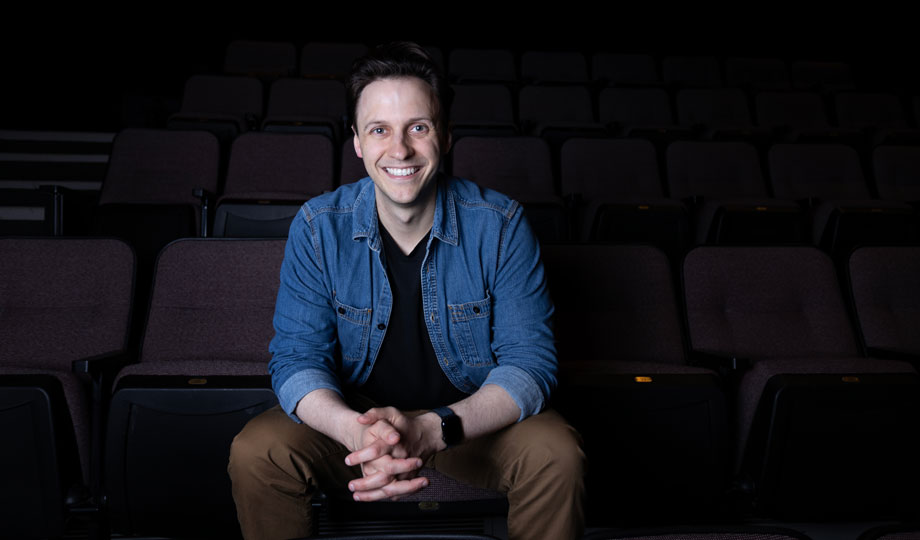By: Joan DiPiero

College of DuPage theater classes offer more to students than running lines and hitting their mark—they help build skills that matter in every area of life, according to Daniel Millhouse, assistant professor of theater.
From boosting confidence and communication to navigating careers, relationships and the tricky art of “adulting,” theater can be an educational building block for everyone.
In short, theater isn’t just for actors anymore.
“You may think that an actor wants attention, but in theater, we teach you how to take the attention away from yourself," he said. “Let's say I have information I want to share with the audience. Relaying that information is not about what I do as an actor; it is about what I want the audience to feel, think and say."
An Actors’ Equity Association actor, director, stage manager and Interim Associate Artistic Director for Buffalo Theatre Ensemble, Millhouse trained throughout the United States and Russia, bringing a broad range of experience to his teaching. His emphasis on truth in storytelling helps students relate to characters and themselves.
One of the biggest takeaways from a theater class is learning to remove the interference that prevents students from being totally engaged in a conversation. Millhouse acknowledges that people get so caught up in thoughts and internal interference that they have trouble focusing on what is going on right in front of them. He advises that people get out of their way and be in the moment, honing listening skills instead of acting.
"It is really much more freeing to let go of what we want to say and pay attention to what is being said," he said. "It takes the pressure off of you as an individual and lets you be present in the moment. One of our jobs as an actor is to always make our partner be the most important person in the room.”
His students practice this technique in class, using their own voice instead of putting on an act. Millhouse suggests that theater is the safe place to do the unsafe things that need to be done.
“Acting is about truth, living truthfully in imaginary circumstances,” he said. “It provides an atmosphere to have those difficult conversations.”
Instead of taking on a different persona, he asks students to be authentic, stressing that acting is a way to be truthful with yourself. It is also a way to find truth in someone else. Millhouse urges his students to develop empathy so they can understand their character’s motivation.
Taking that lesson further, he believes that this will also help students navigate real-life relationships.
“If all villains think they are the hero in their own story, how can you have a disagreement with someone if you don’t know where they are coming from?” he said. “Theater techniques help students develop an understanding of where someone is coming from and how we respond to them.”
While speech classes help students improve communication skills, Millhouse encourages students to add theater to their coursework for the additional skill set they will develop as well as the joy that it brings.
“Acting helps you communicate the human experience,” he said. “As kids, we enjoyed make-believe, but as adults, we are taught to suppress that desire. Acting is a place to find that sense of play again. It is called a ‘play’ after all.”